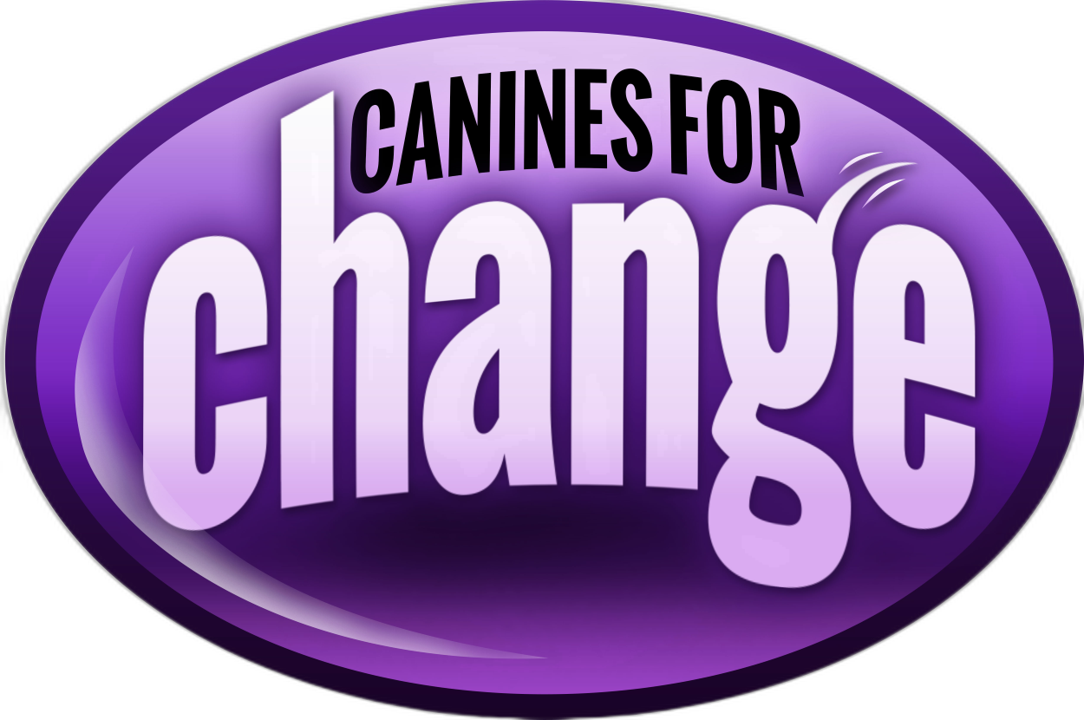Our Process
At Canines for Change, our mission is to provide well-trained service and facility dogs tailored to meet the unique needs of each individual we serve. Our process is deeply personal, collaborative, and focused on building strong, lasting partnerships between humans and dogs.
Service Dog Process
-
All potential clients begin by completing a detailed application, including supporting documentation of both disabilities and abilities. This helps our team evaluate how a service or facility dog may best support the applicant’s daily life.
Once the application is reviewed and approved, a personal interview is scheduled with a Canines for Change representative. After this step, the applicant may choose to move forward by entering into a formal agreement with us.
Please note: Acceptance is based on several factors including the applicant’s needs, lifestyle, and the availability of an appropriate dog. Not all applications result in a placement.
-
As early as possible, future handlers and their families are invited to observe training sessions and begin learning the basics of dog handling, care, and communication. This time builds essential knowledge and confidence — helping ensure a successful future partnership.
-
Puppy raisers play a crucial role in shaping future service dogs. They provide:
A loving and consistent home
Daily care and socialization
Attendance at weekly obedience classes
Transportation to vet appointments and outings
Canines for Change covers all costs associated with raising the puppy unless the raiser chooses to donate them for a tax deduction.
-
During this stage, each dog is trained to perform specific tasks based on the client’s individual needs — such as mobility support, medical alerts, or emotional regulation. Training also includes advanced obedience, public access readiness, and continued socialization.
Throughout this time, the dog and family begin building their bond through structured visits and outings, with increasing responsibility and involvement.
-
Once a match is made, the dog begins spending time in the home for short visits. When both dog and handler are ready, the dog transitions to full placement with their new family. Canines for Change provides continued training and guidance during this transition period.
-
After successfully completing all phases of training, the dog and handler team undergo a final assessment. Once passed, the team receives:
A Canines for Change ID badge
Public access certification
Ongoing follow-up and support
All service and facility dog teams must complete an annual re-certification test to ensure continued public access rights and maintain high performance standards. Ongoing support and training refreshers are available as needed throughout the life of the dog.

Facility Dog Process
-
All prospective facility partners begin by submitting an inquiry form. Our team will review your needs and goals for having a facility dog in your setting—whether it’s a school, therapy program, public service department, or mental health facility.
If your organization is a good fit, we’ll schedule a personal interview to learn more and discuss expectations. From there, you may choose to move forward by entering into a formal agreement with us.
Please note: Placement depends on your environment, team readiness, and the availability of a suitable dog. Not all inquiries result in a placement.
-
Key staff or handlers are invited to observe training sessions and begin learning about handling, care, and how a facility dog can be successfully integrated into your setting. This early involvement helps build a foundation of trust and understanding.
-
Facility dogs begin in a puppy raiser home, where they receive:
Daily care and early socialization
Exposure to various environments
Attendance at weekly obedience classes
Transportation to vet appointments and outings
Canines for Change covers all costs during this stage unless the raiser chooses to donate them as a tax-deductible contribution.
-
Dogs continue their education with advanced obedience, public access training, and task work tailored to school or facility settings—such as emotional regulation, crowd comfort, and calm presence.
-
Once a strong match is identified, the dog begins spending time at your location for short visits. These visits gradually increase in length and responsibility, allowing staff and students or clients to get comfortable.
-
Following a successful final assessment and certification, the dog and primary handler(s) receive:
Canines for Change ID badge
Ongoing support, training refreshers, and re-certification guidance
All facility dog teams complete an annual re-certification process to ensure readiness and support continued success. Our trainers remain available for support throughout the dog’s working life.

Whether you're applying for a service dog for yourself or a loved one, or you're looking to bring a facility dog into your school or program—we're here to help guide the way.
